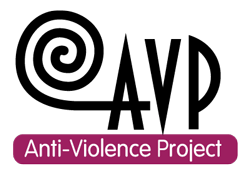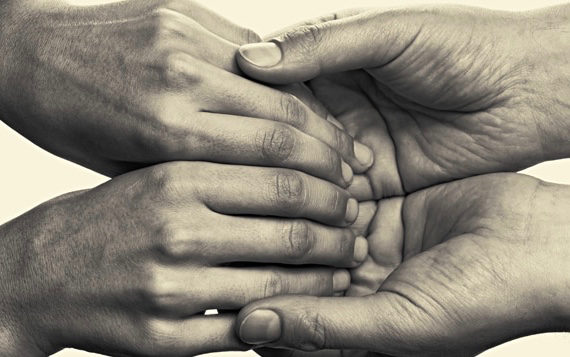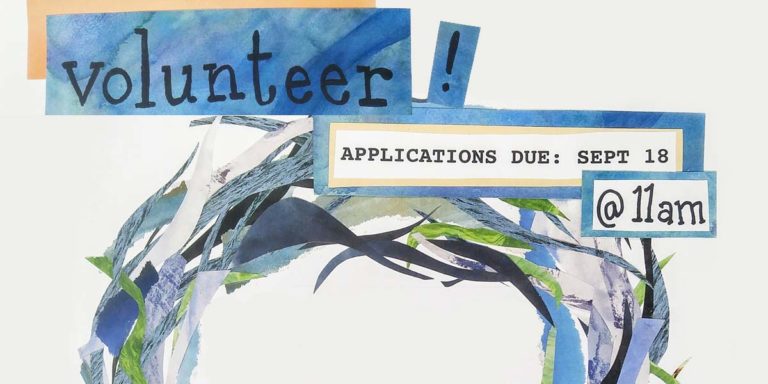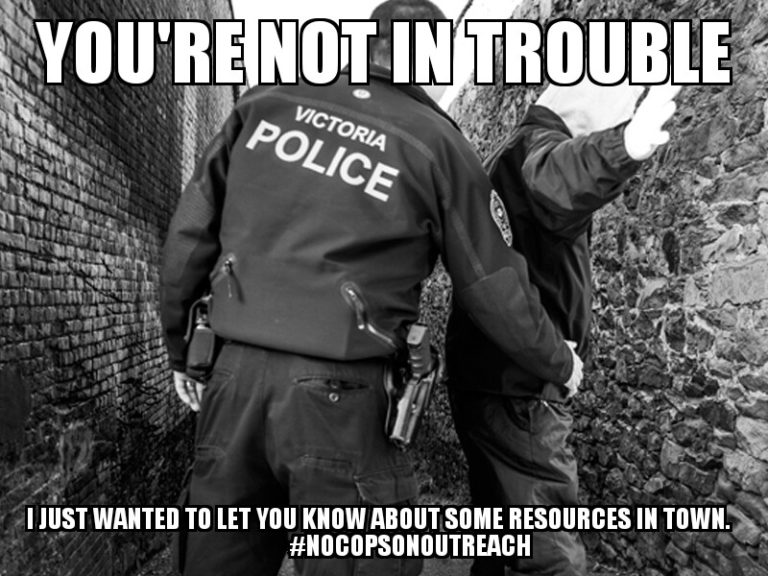Reflecting on Support and Consent
*written by Elise Fermina Freire, one of our amazing volunteers*
Recently I’ve been thinking a lot about support and consent, even more so now that I am volunteering with the Anti-Violence Project (AVP). Support and consent are linked, as both are actions usually driven by feelings of care. Yet, I would argue that how we support others, both professionally and informally, often does not give consent its proper place.
I started thinking about this topic by considering the ways in which consent could enhance and strengthen support. However, I got to a more satisfying answer only after considering how the ways we talk about support, and practise it, are influenced by dominant social norms and systems of oppression. To name a few beliefs/actions/behaviours that impact support:
- A dislike for vulnerability and emotional reactions. This could look like repressing our own feelings and/or encouraging others do to the same: “just get over it.” It could be shame for our privileges and the ways we have harmed others in the past, and letting those feelings derail support. It could be the belief (conscious or not) that being vulnerable shows weakness, and that those who are vulnerable need to be saved.
- Individualism. Individualism promotes the belief that we need to be able to survive on our own, without the help of communities, and that individuals are singularly responsible for their own fate. It disregards the impact of social structures and systems of oppression on individual lives and puts blame on individuals rather than the social and cultural systems we live in. It also often associates emotions and vulnerability with weakness.
- Binary thinking. Binary thinking is the belief that ways of being can be classified into two tidy categories. It includes the gender binary (male/female), beliefs about good/evil, beliefs that there only one way to be/do/feel. It may include beliefs that survivors of violence follow a particular path of healing, and that there is a limited set of “acceptable” responses to violence. Binary thinking works by invisibilizing alternative experiences and ways of being.
- Hierarchies of power. These often take the form of relationships with unequal power dynamics, such as between counsellor/client, employer/employee, teacher/student, parent/child, and can encourage power abuses and acts of oppression against the disempowered person in the relationship. When power is present there is the risk of reproducing systems of oppression, especially when the person providing support is a member of a dominant group, and the person receiving support is not.
- White-centeredness and Heteronormativity. As a white heterosexual woman, Western culture centers my experience. It has worked to make me ignorant of the experiences of marginalized groups and communities, while (falsely) teaching me that my experience could allow me to understand the experiences of others. Thus, it perpetuates the myth that individuals whose experiences have been centered by society can fully understand the struggles and complex experiences arising from oppression.
These common sets of beliefs, actions and behaviours are created and perpetuated by different systems of oppression. One such system is the patriarchy, which devalues emotional responses and emotional vulnerability. We have all seen portrayals of emotional, vulnerable individuals in the media, and the different reactions of other characters based on the individual’s perceived gender. For example, masculine-looking individuals are mocked or asked to hide their feelings (unless it is anger). Feminine-looking individuals may receive emotional support by their peers, but may also be belittled and portrayed as clueless, or needing someone else to take charge. There are norms in place about who and when one is allowed to be vulnerable without being diminished or seen as weak in the eyes of others.
Under patriarchy, emotional responses and vulnerability are seen as feminine characteristics, and considered weak. The language we use to describe intense emotional experiences is even more telling: “meltdowns,” and “losing our shit” instead of concealing one’s feelings and “powering through” or “keeping it together.” Thus, experiencing and showing intense emotional reactions is not valued; it does not signal the capacity to deeply engage with life, express one’s humanity, make sense of painful experiences or have the strength to share one’s most vulnerable self with another person (yet it often requires some or all those things). Instead, language reinforces the belief that not showing one’s emotions comes from a position of strength and self-control, and that emotions are dangerous.
At the same time, in an individualistic and competitive society, there is pressure to always function at our best, and to perceive one’s states (emotional, social, etc.) as a result of one’s individual actions rather than one’s given rights and privileges (or lack thereof) in society. We are often told to believe we know how to do things, and that there is one way to do things, one way to be healthy, and one way to achieve a life worth living. Countless movies portray successful lives as the succession of: getting an education, getting a well-paying job, marrying (preferably in a heterosexual relationship), having children, buying a house, and displaying one’s success.
Yet, our beliefs about the right way to do things may cloud our affective responses when providing support (and potentially cause harm to those seeking support). At times, another person’s choice may illuminate, for us, the painful ways in which we are trapped in our own social roles, or the ways in which our privileges limit the choices this person has. We can experience sadness, shame, fear, or anger at having the narrative of our life indirectly challenged. It may be we are envious of their freedom and their strength or it may be their struggle and successes go against some deep-seated values or beliefs in how the world works. If we are unable to recognize our reactions to this, they may lead us to devalue others’ life choices, to explain them away (“they are only doing this because they have been mistreated by society”) or to provide unsolicited advice. Not everyone needs kids, a home, a full-time job, or other socially endorsed goals in order to be happy and our emotional reaction often tells us as much, if not more, about ourselves than about the choices the person in front of us is making.
Support needs to be protected from these influences not only by consent processes, but also by a deeper self-repositioning by people who provide support. Individuals giving support may need to work at repositioning themselves and challenging their own self and other expectations and their beliefs about vulnerability. At times, providing support vulnerably may mean walking in the land of paradoxes. It may mean:
- Holding space for the person’s emotions and their inner strength and resiliency (they have survived much to make it this far!)
- Holding space for our feelings of inadequacy and helplessness (there is often little we can do – we can’t make events un-happen or simply erase their pain)
- Trusting they will know what they need
- Holding that they may not know what they need right now and we still don’t have the right to decide for them
- Holding that this society has hurt them in many ways and yet it is through the support of their communities that many will recover
- Holding that they came to us for support but don’t need us (we are most likely not the only person they can go to)
- Respecting others and their lives through the messy, complicated, confusing and beautiful journey
- Checking in with ourselves every time there is a little voice that whispers in our ears: “you know what is best, they are too distressed.” Because you probably don’t know what’s best for them, actually.
Implementing consent in our support reminds us that those who we support have the capacity and right to decide what is best for them, however distressed or overwhelmed they may seem. In moments of distress more than ever, they have a right to their boundaries, their own idiosyncratic ways of coping and being themselves (and yes, that may mean they make decisions which we may think are very ill-advised), and that they deserve support from someone who can help them explore the risks they may want to take, and be present and non-judgmental if they decide to take those risks and experience pain as a result.
We can only truly meet those who we support if we provide a space where we ask for their permission, even for the smallest things, and let them know we are simply there for them. We may need to let them know that they don’t need to do anything or change who they are in any way for us to provide them with support, and that they still know what is best for them, and that we are grateful they came, because being vulnerable in front of another person is an act of resistance and courage, not an act of weakness. And we must remember that we can only truly meet them where they are at if we incorporate an understanding of the contextual social forces playing at any time into our relationship with them, whether those forces are the ones I have discussed here or the other dynamics created by gender, race, and socio-economic status (among others). Consent, in all areas of our support, can only strengthen it, not dilute it.
Acknowledgements: I would like to acknowledge the help of meg and Serena in writing this blog post, and helping me to clarify and flesh out my ideas. I would like to thank the 2018 AVP training group and the AVP staff for their time and the multiple resources they provided me with. I would also like to thank my partner and my sister, who have helped me grow in my understanding of systems of oppression and with whom I have shared countless discussions.







